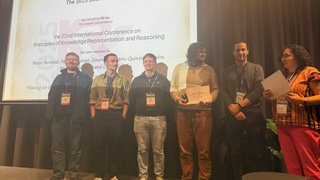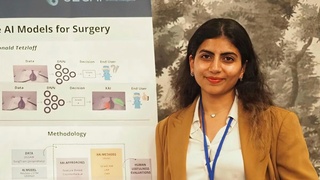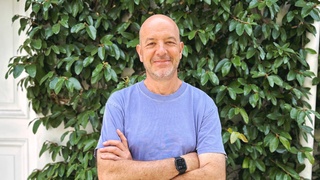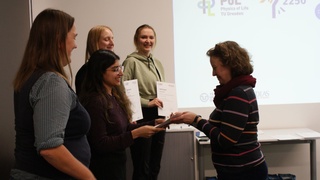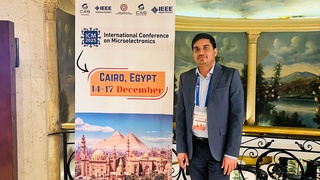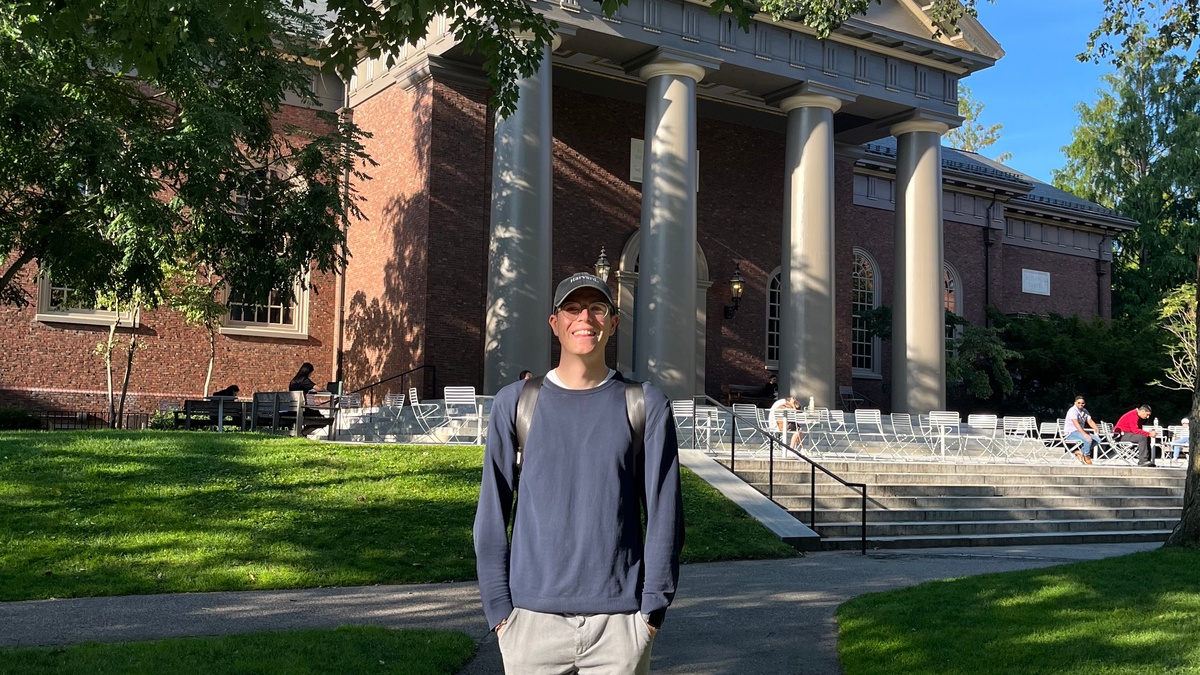
October 14, 2025
Moritz Hehl conducts research at Harvard University.
From July to September, Moritz Hehl conducted research at Harvard University under the supervision of Melanie Weber on the connections between the feature geometry of deep neural networks and Ricci flow. The project, which combines approaches from differential geometry and machine learning, was developed under the joint supervision of Weber and Max von Renesse. Weber is one of the leading researchers in the field of geometric methods in machine learning. Moritz's work with her research group in Cambridge, Massachusetts, resulted in a joint publication on the connections between the feature geometry of deep neural networks and Ricci flow.
Our understanding of why deep neural networks are so powerful and generalize so well remains limited. In his research, Moritz Hehl uses methods from Riemannian geometry, in particular Ricci curvature, to better understand how neural networks work internally and what geometric information from the data is preserved in their representations. During a research stay at Harvard University's John A. Paulson School of Engineering and Applied Sciences, he conducted research in Weber's Geometric Machine Learning Group, which aims to use geometric structures in data to improve machine learning models and optimization algorithms. A central concept here is Ricci curvature.
Under Weber's supervision, he worked on a publication on the connections between the feature geometry of deep neural networks and Ricci flow. They were inspired by Perelman's groundbreaking solution to the Poincaré conjecture, which used Ricci flow to smooth the geometry of manifolds and thus gain deeper insights into their topology. This concept shows a remarkable analogy to deep neural networks, which tend to simplify the geometry of the underlying data manifold in classification tasks to make the structure of the classes more clearly visible. They quantified this behavior and derived new, geometrically motivated methods for network selection and early stopping heuristics.
Moritz says: “Conducting research on site was crucial to the success of my project. The regular face-to-face meetings with Melanie were incredibly helpful and contributed significantly to the creation of our paper. The regular seminars, in which doctoral students and postdocs presented their current work in the field of machine learning and engaged in an open exchange with very helpful feedback, were particularly enriching. In addition, Harvard offered exciting lectures by leading researchers such as Yann LeCun (Turing Award winner) and Jascha Sohl-Dickstein (inventor of diffusion models), which provided valuable insights into the latest developments in AI research.”
About Moritz Hehl
Moritz Hehl earned his degree in economic mathematics at the University of Leipzig, spending one year at the Scuola Normale Superiore di Pisa. Since October 2024, he has been pursuing his doctorate as part of the SECAI Graduate School at the University of Leipzig under the supervision of fellows Max von Renesse (University of Leipzig) and Guido Montúfar (UCLA). His research focuses on discrete Ricci curvature, both in its theoretical aspects and in applications for machine learning and artificial intelligence. Moritz Hehl stands out not only for his upcoming doctorate, but also for his prolific publicationsprolific publications.
